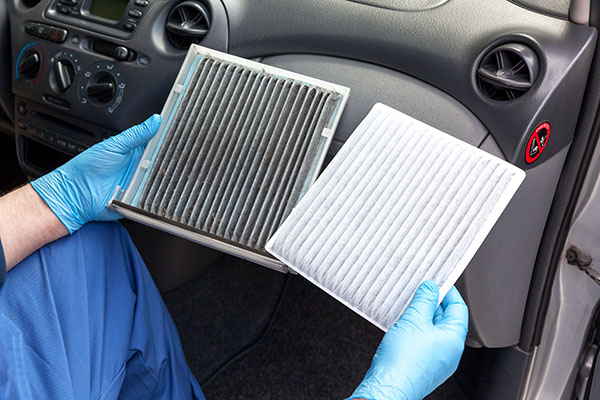Posted on 11/28/2023

As a BMW owner, you understand the significance of having a vehicle that embodies precision engineering and exhilarating performance. To ensure your BMW's longevity and optimal performance, it's essential to maintain and repair your vehicle regularly. While you enjoy the thrill of driving it, certain repair and maintenance services require your attention to keep it in top condition. Regular Oil Changes and Fluid Checks Keeping a strict schedule for oil changes and fluid checks is crucial for maintaining the performance and longevity of your BMW's engine. High-quality synthetic oil and regular checks of transmission, brake, and coolant fluids ensure optimal lubrication and smooth operation, contributing to the overall health and performance of your vehicle. Comprehensive Brake System Inspections Frequent inspections of the brake system, including ... read more
Posted on 10/27/2023

Welcome to the Bay Area! A mesmerizing tapestry of culture, nature, and innovation. Beyond the tourist hotspots, this region harbors hidden gems that are waiting to be discovered. Join us on an extraordinary journey as we unveil the top five secret treasures you absolutely must visit in the Bay Area. #1 Point Reyes National Seashore Nestled just a stone's throw away from the bustling city of San Francisco lies Point Reyes, a serene haven of raw beauty. Explore the dramatic coastline, hike through enchanting forests, and keep an eye out for the resident tule elk. The Point Reyes Lighthouse offers breathtaking views that will forever be etched in your memory. #2 Muir Woods National Monument Venture north to Muir Woods and step into a world of giants - the towering coastal redwoods. These ancient trees, some over a thousand years old, create a cathedral ... read more
Posted on 9/29/2023

Just like we need clean air to breathe and stay healthy, your car's engine and occupants also require clean air for optimal performance and comfort. To keep your vehicle running smoothly, it is important to regularly maintain and replace its filters. In this guide, we will take you through the process of changing three critical filters in your vehicle: the air filter, oil filter, and cabin air filter. This process is simple yet essential to ensure optimal performance and longevity of your car. By the end, you'll not only ensure your car's longevity but also enjoy a cleaner and more comfortable driving experience. 1. Air Filter Replacement Your car's air filter is like its lungs, allowing it to breathe freely and efficiently. A clogged air filter can lead to reduced fuel efficiency and engine performance. Here's how to change it: Tools and Materials You'll Need: New air filter Screwdriver or socket set Owner's manual (f ... read more
Posted on 8/30/2023

Hybrids! They are amazing - offering good fuel efficiency and reliability. But just like any other vehicle, they tend to have issues and sometimes, brake. Let's take a look at three of the most commonly repaired parts and systems in an HV and how to avoid them! 1. Hybrid Battery Replacement The hybrid battery is the heart of a hybrid vehicle's powertrain. Over time, the battery's capacity may degrade, leading to reduced fuel efficiency and performance. While hybrid batteries are designed to last a long time, eventual replacement may be necessary. To avoid premature battery failure: Proactive Maintenance: Follow the manufacturer's recommended maintenance schedule for your hybrid battery. Regular check-ups can help iden ... read more
Posted on 7/30/2023

The electric vehicle market is witnessing fierce competition as companies strive to redefine transportation with sustainable, high-performance vehicles. Among the notable contenders is Lucid Motors, an automotive company focused on delivering luxury electric vehicles that rival and compete with Tesla. In today's article, we will take a closer look at Tesla's biggest competitor and discover Lucid's history and strong sides. A Visionary Approach to Electric Mobility Lucid Motors, founded in 2007, aims to redefine electric mobility through cutting-edge technology, sustainable practices, and a commitment to luxury. Led by a team of automotive and technology experts, alongside one of Tesla's vice chef engineers - Peter Rawlinson, Lucid Motors set out to create innovative electric vehicles that challenge traditional norms and rival the best in the industry. Lucid Motors often finds itself compared to Tesla, a pioneer in the electric vehi ... read more